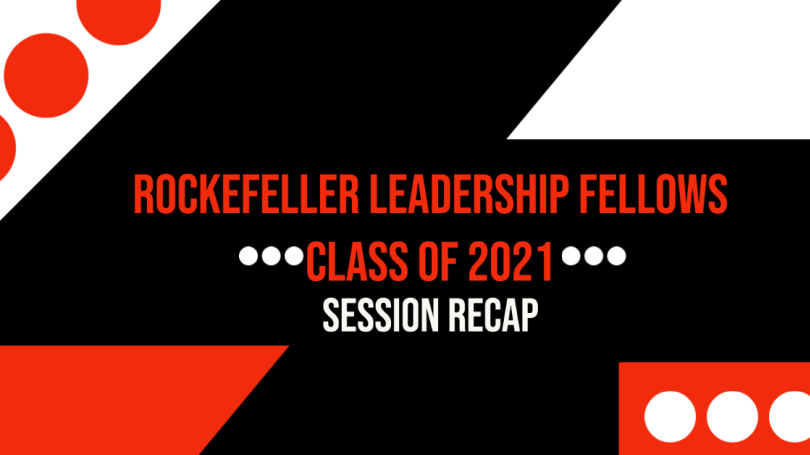
- Public Policy
- Leadership
- Funding
- News & Events
- About the Center
Back to Top Nav
Back to Top Nav
Back to Top Nav
Back to Top Nav
The director of both the First Year Student Enrichment Program and the King Scholars Program at Dartmouth, Jay Davis ’90 has a wealth of experience working with students to prepare them for the rigorous of academics at a prestigious college. Through this experience, Jay has learned a lot about cultivating effective group dynamics and developing strong interpersonal skills. For the Fellows’ fifth session, they joined Jay to learn about how to blend their individual work styles in a group to achieve common goals.
Jay believes that the best leaders know themselves well, echoing a theme introduced by previous speakers. Understanding what leadership values they most value and which leadership styles they find most ineffective can guide the development of the Fellows’ personal leadership philosophies, and thus how the Fellows practice leadership. It is equally import, as Jay pointed out, to understand how those you are working with or leading feel about different leadership strategies. When a leader knows how they prefer to lead, how they prefer others lead, and how others prefer to be led, a leader can cultivate the most effective leadership style for each group that they lead.
To help the Fellows understand their workstyle preferences in common terms, Jay introduced the concept of a workstyle compass. Everyone falls somewhere on the compass, either as a West that focuses on details, as a North that focuses on action, as an East that focuses on the big ideas, or as a South that focuses on the social dynamics and needs. After self-assigning themselves to the compass direction that they most related to, the Fellows worked within their compass groups to understand the strengths and weaknesses of their workstyle. These findings were then shared to the whole group.
This exercise in naming their workstyle gave the Fellows another opportunity to better understand how they see and approach the world, as well as how they interact with others. Much like the Meyers-Briggs Test, the compass can aid self-awareness, which in turn can improve interpersonal skills. Leadership skills are multilayered, and the Fellows are being given many lenses through which to understand each layer.
The discussion ended with some poignant thoughts from Jay. Referencing many of the most well-respected leaders in history, Jay explained that even those leaders were flawed, reminding the Fellows that a part of leadership is making mistakes–and then learning from those mistakes. Of course, frameworks such as the compass can help prevent unnecessary mistakes by helping leaders construct more beneficial relationships, as the Fellows continue to learn.
-Written by Maria Smith-Lopez, Class of 2021 Rockefeller Leadership Fellow and Student Program Assistant
As Rockefeller Leadership Fellows, seniors gain a better understanding of the qualities and responsibilities expected of leaders. As Fellows take part in the workshops, discussions, and team-building exercises, they examine their skills, qualities, and attributes as leaders and analyze how these influence teamwork and achieving goals.